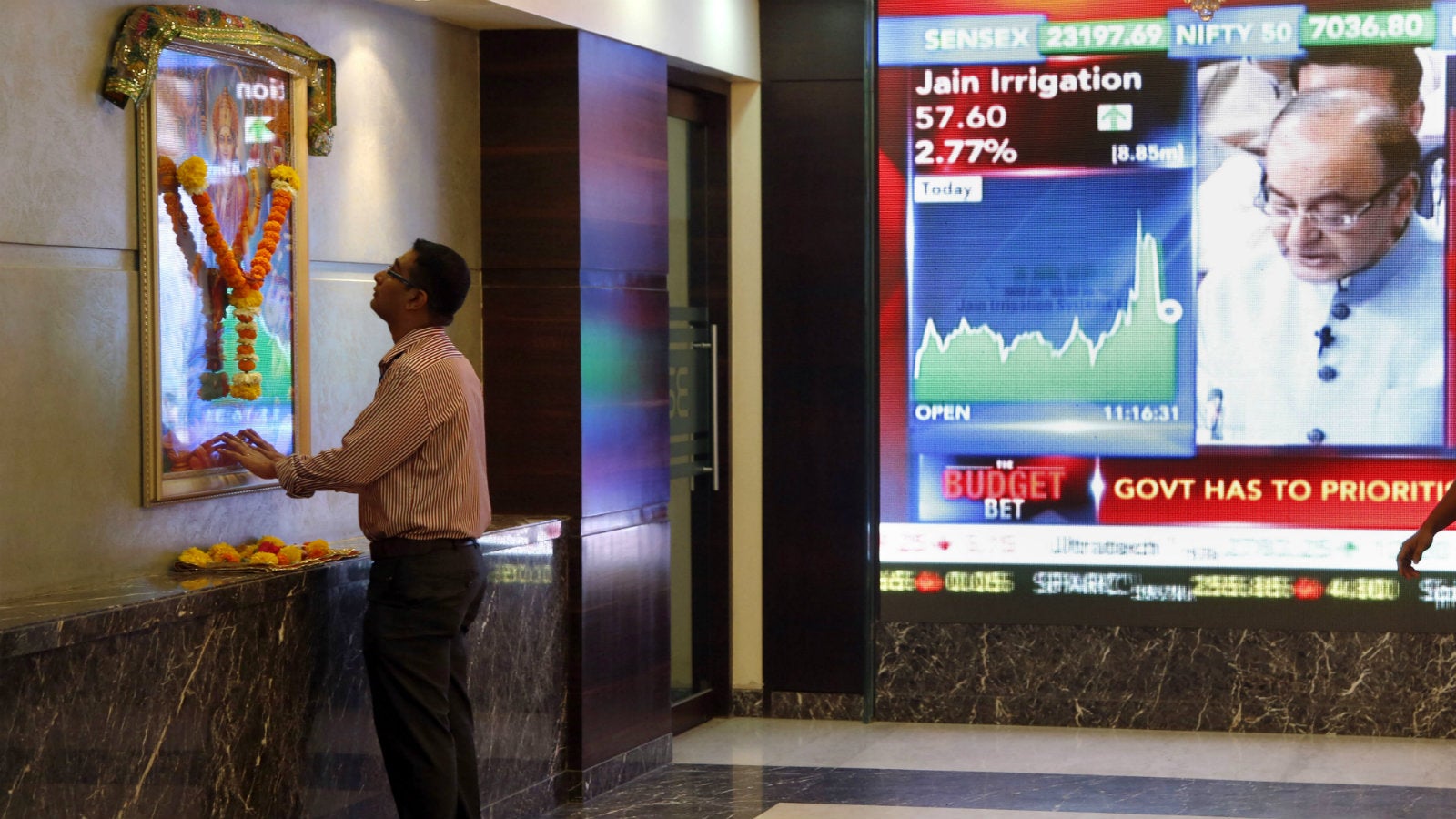India’s startups feel stood up by Arun Jaitley
By 11 am on Feb. 29, several entrepreneurs and investors in Bengaluru—India’s Silicon Valley—had shelved all their work to sit before their television sets.


By 11 am on Feb. 29, several entrepreneurs and investors in Bengaluru—India’s Silicon Valley—had shelved all their work to sit before their television sets.
Some entrepreneurs stayed at home; some watched with colleagues at work. Others, like eight entrepreneurs and investors from iSPIRT, a software industry think tank, formed a WhatsApp group to discuss the details in real-time.
India’s finance minister Arun Jaitley was presenting his annual budget speech for fiscal 2017.
Expectations were obviously running high. Prior to prime minister Narendra Modi’s, no other government had engaged with India’s startup community as much.
But as Jaitley finished his speech (pdf), they were all left wanting more.
“There was nothing in the budget,” an entrepreneur, part of that WhatsApp group told Quartz, requesting anonymity. “We were shocked because the government promised so much, and none of that reflected in Jaitley’s speech.”
“We are disappointed with no attention being given to easing taxation norms of software companies where there is significant friction,” iSPIRT said in an official statement on Feb. 29.
It didn’t take long for the disappointment in the startup community to become public.
“Budget 2016 has not been very startup-friendly as was the expectation after the Startup India initiative,” Ritu Singh, co-founder of CareOnGo, a healthcare startup, said in a statement. “The definition of a startup is still not simplified, and only a funded startup is considered one, which is not fair.”
What budget had for startups
“Startups”, “entrepreneurs”, and “innovation” were mentioned multiple times by Jaitley during his speech. Here are some of the initiatives announced:
Tax holiday: The government proposed 100% tax deduction on profits for three out of the first five years for startups that will be set up between April 2016 and March 2019. “Startups generate employment, bring innovation, and are expected to be key partners in Make in India programme,” the finance minister said, proposing the exemption.
Modi had talked about this initiative earlier, but the initial announcement was to give income tax exemption to startups for the first three years of their operations. “The earlier policy only covered no taxes for first three years, and the same provided no relief for at least 90% of startups. Generally, the first two-three years are towards investments and, hence, there are no profits. Thus, the earlier policy provided no relief,” said Ankita Jain, co-founder of coupons portal, GoPaisa.com.
Even in its new form, the announcement is likely to have a limited impact. “How many of the emerging companies will be able to take advantage? Will every company be able to turn out so much profit in the span of three years?” asked Abhayanand Singh, founder of muvizz.com, an on-demand film streaming company.
Starting up: In line with Modi’s announcement during the launch of Startup India Action Plan on Jan. 16, Jaitley said the government is working to enable registration of new companies in just one day. Accordingly, the government plans to introduce a bill to amend the Companies Act, 2013 during the current session of parliament.
“This will allow a speedy way to setting up a venture and help startups to focus on building disruptive products and services without worrying,” Shashank ND, founder and CEO of Practo, a healthcare startup, said.
But some felt that more should have been done.
Capital gains tax: If an investor puts money through a notified fund of funds in specific startups, he or she will not be charged a capital gains tax. A fund of funds holds a portfolio of investment funds rather than investing in startups directly.
The budget has also proposed to reduce the long-term capital gains tax burden on startups. Listed companies do not attract a long-term capital gains tax beyond 12 months, but privately-held startups attract it at 20% for three years. The budget has proposed to reduce this period to two years, although countries like Singapore have no such tax.
Several entrepreneurs backed this reform, adding that it would boost investments in Indian startups.
Jaitley, however, excluded a long-standing request by startups to provide tax exemptions on angel investments. ”We had hoped that treating investments by angel groups in unlisted companies would be aligned with the public market equity tax regime,” said Padmaja Ruparel, president at Indian Angel Network, an organised group of angels.
Women entrepreneurship: The budget has proposed an allocation of Rs500 crore for women entrepreneurs and entrepreneurs belonging to scheduled castes and scheduled tribes.
“Allocation of Rs500 crore to women and categorised entrepreneurs seems to be insufficient when it comes to fostering pan India growth,” Anisha Singh, CEO and co-founder of Mydala, an online deals website, said. “Given the fact that there are over 19,000 startups in India, supplementary allocation of funds to this category would be warranted in order to actually aid startups and make this programme a success.”
Special patents regime: The budget has also proposed a special patent regime with a 10% tax on income from patents developed and registered in India.
Any unfulfilled wishes? “I was hoping the government will make capital for entrepreneurs more accessible and cheaper, and offer R&D credits and lower costs for innovations,” Sandeep Agrawal, founder and CEO of Droom, a marketplace to buy and sell used automobiles, said. “It could have made listing rules streamlined for startups, and repatriation of capital (R&D credit from foreign countries) more accessible, too.”